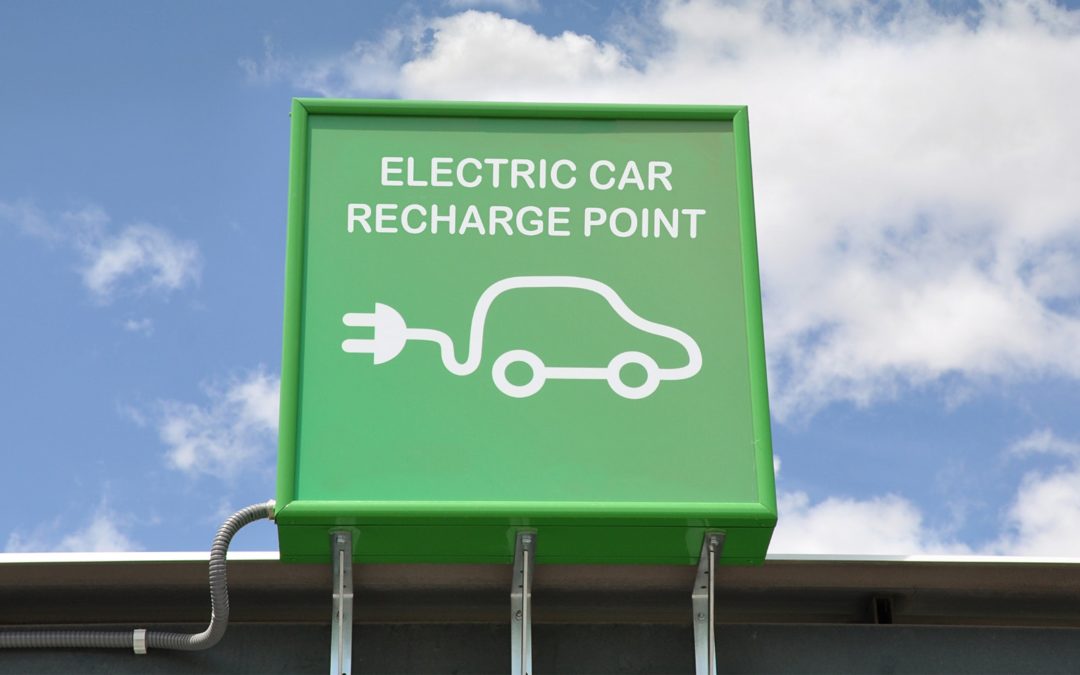You bought an EV. You bought an in-home charger for a hefty sum, but 90% of the time it is not in use. Why not use it by selling charging to those traveling to your neighborhood who want a convenient way to get a top-up while they visit friends and make a little extra money on the side? That is the kernel of the idea that Angel Melchor, Koral Buch, and Meredith Roberts had when they entered the UC Davis Graduate School of Management’s Big Bang! Competition in 2020. They developed that idea and now won the Big Bang’s $10,000 Clean Energy Prize. And they have gotten serious about making this into a real business. Recently, they presented their concept at one of our Perspectives events and you can watch it here.
“Borrowing” an EV charger has been a feature of the EV community since Tesla and Nissan introduced marketable EVs. If there was a charge for this, it was handled informally. Mostly it was just a courtesy. There were websites listing contact info for those participating in this network, and arrangements were made peer-to-peer. INN>CHRG believes this is not good enough to accelerate the adoption of EVs, with range anxiety still a significant point of reluctance to buy one and more assurance needed that charging will be available at a destination. No need to hunt up a charger in a grocery parking lot and kill time waiting to accumulate a decent charge. Better to park your car at a charger near your intended destination in a residential area and walk. Their bet is that if the personal investments in chargers – and even in chargers at commercial locations — could be used more efficiently, the worries about having enough charge for a trip would vanish.
The genius comes in making use of someone else’s charger certain and convenient but not complicated. INN>CHRG intends to provide “matchmaking” software plus hardware to provide secure access to a charger, a billing and payment system, and a way to collect money from users for the service that does not run afoul of any legal restrictions. They also need a system to be sure the price charged covers all the costs and leaves enough left over that, when split between the charger owner and INN>CHRG, keeps both happy. They do not have all this done yet. They are working diligently to make it happen. They have a team working on the key software. They have been accepted into two incubators that provide coaching and connections, and they have won two awards, with the most recent one the largest to date. They will be entering other competitions and applying to CalSEED to continue the work of getting a prototype together. They don’t have numbers yet on what it will cost the owner of the charger to install the equipment and apps required to make this work.
They intend to work with those that at least have Level 2 chargers, preferably 32 to 80 amp chargers models that can give 25-50 miles of charge in an hour.. The charger itself costs $500-1000, with installation of a 30-850 amp 220v plug on top of that. Many of these chargers are WiFi enabled and that may be a requirement to participate, since that may provide the way to assure. The total price might be on the order of $2000 to be in the game, with maybe a $500-$1000 increment over what someone would have paid anyway.
There are faster chargers that operate at 480 v and over 100 amps that can provide 100+ miles of charge in 20-30 minutes, but these come at a prohibitive price for homeowners. They require a 480 v transformer from the utility to be hooked up, plus equipment prices that would exceed $25,000. These are more suited for commercial establishments. However, the INN>CHRG app could still be useful as a way to reserve time on the chargers.
The team estimates they may get $500,000 in revenue in the first year the app is ready, and be up to $11.5 million by the fifth year. This is consistent with the app being wildly popular. This is likely going to be a function of convenience (low hassles) and price. EVGo charges $1.50/hr on its L2 chargers for 25-40 miles of added range in that hour (4-6 cents per mile) and $0.35 per minute on its fast DC charger, providing 60-100 miles of added range in 20 minutes (7-9 cents/mile). People will pay more for convenience and peace of mind, but how much more? And the price needs to be high enough to make it worthwhile for the owner of the charger. Would people pay $10 per hour for renting a neighborhood charger? The cost of electricity for the 10 kWh used would be below $2 in almost all cases, except for charging during the most costly period in the early evening. That leaves $8 to be split. INN>CHRG proposes to take 40% ($3.20) and leave the owner of the charger with 60% ($4.80) to pay off the extra cost of providing the service plus enough incentive to make it worth doing. Would that work? That’s the next big question INN>CHRG will need to confront.

ABOUT THE AUTHOR
Gary Simon is the Chair of CleanStart’s Board. A seasoned energy executive and entrepreneur with 45 years of experience in business, government, and non-profits.
CleanStart Sponsors
Weintraub | Tobin, BlueTech Valley, Revrnt,
Moss Adams, PowerSoft.biz, Greenberg Traurig, Momentum,
College of Engineering & Computer Science at Sacramento State


